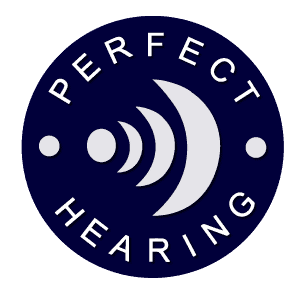While tinnitus can result from the loud noises found in a construction site or music concert, it is a normal disorder that affects many people in a quiet work environment. The constant ringing sound can be irritating, and in a tense situation, it can get worse.
The tinnitus concept is hearing a sound sensation that is not attributable to an actual source of the sound. Subjective tinnitus occurs when the person hears the sound only he can hear. It is the most common form triggered by sensorineural hearing loss, trauma, shock, or stress.
In this post, we are pleased to address some of the realistic actions you should take to ensure that your work experience is as relaxed as possible to relieve the ringing or wheezing sound in your ears.
Here’s how you can deal with tinnitus at work.
Tinnitus Masking
Sound therapy or tinnitus masking is the clearest and most straightforward method of treating tinnitus symptoms in a quiet office. Masking means replacing the sound of tinnitus with a more soothing sound. For instance, you can listen to a piece of soothing music from a smartphone.
More targeted devices, such as a white noise machine or even a tinnitus masker, are also available for more susceptible sufferers. These types of solutions may offer symptom relief and play a role in a longer-term solution.
Attention Strategies
The perceived loudness of tinnitus by any person is subjective. This suggests that lots of different factors will affect the perceived loudness, and one of these factors is where our attention is focused.
We enjoy solving problems as humans. Part of this problem-solving system is about working on the task at hand. Yet, in terms of tinnitus management, the exact reverse is the case.
It is dangerous to concentrate on tinnitus with regard to the experience of it and surrounding feelings. In other words, we reflect and focus on our tinnitus by our problem-solving nature, which makes the sound louder.
It is more beneficial to concentrate on the office’s task for your tinnitus and the sake of the work also. This means mindfully concentrating your attention on your office work rather than the sounds in your ears.
Lunchtime – Take Breaks
The stress of the job and deadlines can easily cut into your free time, making us miss our lunch or leave the workplace late. Part of dealing with tinnitus is to get some rest even when you are at work. This implies setting strong limits between your lunchtime and work.
However, there is more to it than simply taking the time to relax. Eating soothes us, and our nervous system feels that when we are in a safe place where we can eat. Eating healthily prevents the fast lowering of blood sugar, which compounds signs of stress, anxiety, and tinnitus.
Stress Levels
Difficult working conditions can exacerbate tinnitus. In treating tinnitus, it is important to manage our stress levels concerning the job. This could mean that you need to get to work faster than you need to be there. This reduces tension from public transit or traffic.
It is also necessary not to agree to unreasonable deadlines and set firm limits and get a proper night sleep. Again, you may want to consider using a tinnitus masker at night if you find your sleep time uncomfortable because of the symptoms.
Transitioning
Transitioning, concerning tinnitus, determines the transition from one environment to another, such as moving into a calm conference space from the workplace’s hustle and bustle.
In this case, it is great to get to the meeting early and relax in the new peaceful room. It gives the nervous system the chance to adapt by doing some calm relaxation exercises before the meeting starts.
In a Nutshell
Finally, the cause of tinnitus can be treated in certain cases. For example, antibiotics can fix the problem if a middle ear infection causes noise in the ear.
Therefore, ensure that you visit an audiologist or ENT doctor for a hearing test to determine the cause of the ringing sensation in your ears.



